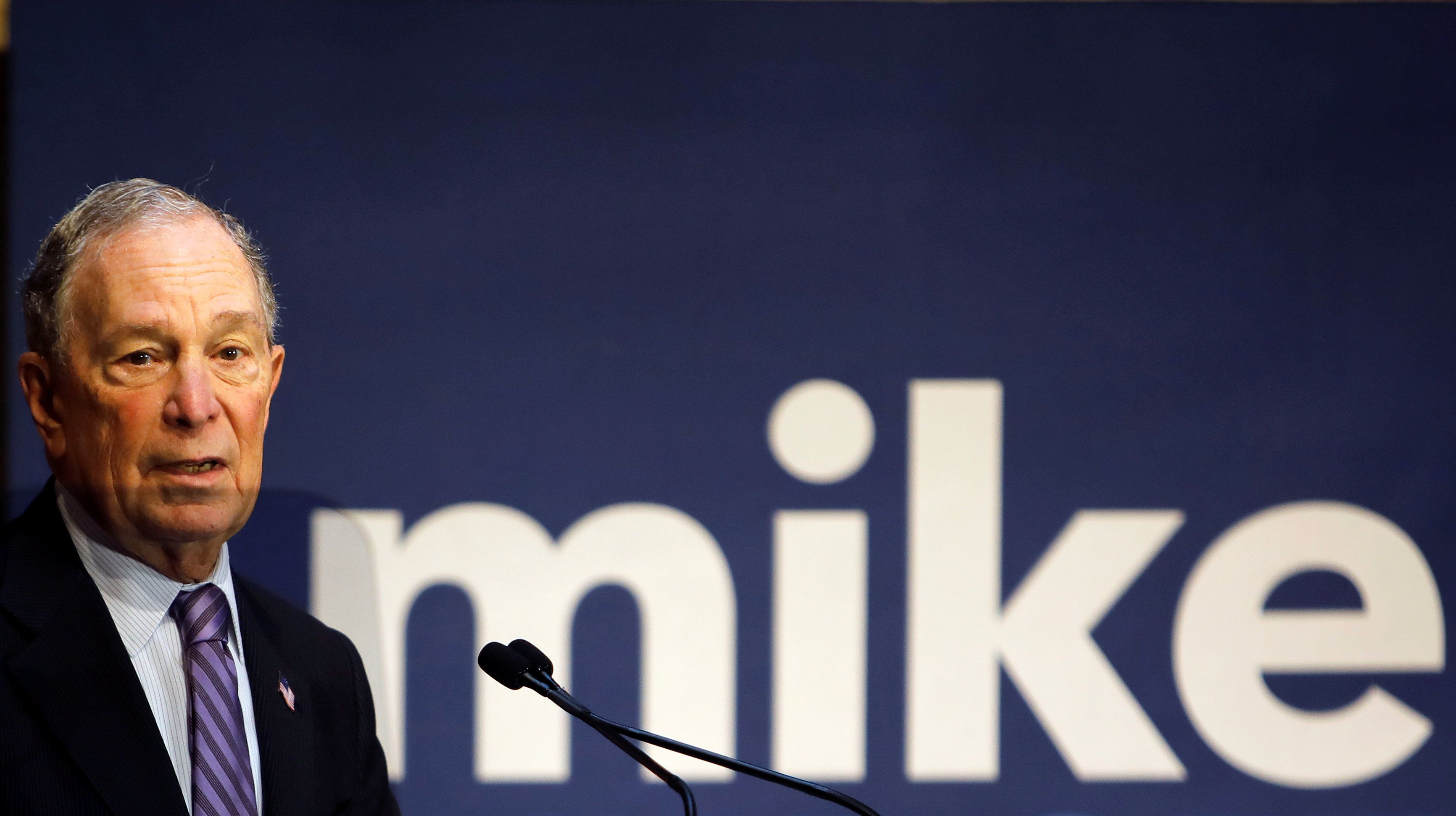What We're Watching: Bloomberg's debut, Assad's victory, a big Caribbean glitch
Bloomberg takes the stage – Tomorrow's Democratic debate will be the first to feature media tycoon Mike Bloomberg, who in recent weeks has thrown hundreds of millions of dollars behind an ad campaign designed to position himself as a viable, moderate candidate who can beat Trump. As his support in national polls has climbed to nearly 20 percent, Bloomberg – who largely sat out the earlier rounds of Democratic campaigning – has come under attack for sexist comments in the past as well as his support, as NYC mayor, for "stop and frisk" policing tactics that disproportionately targeted people of color. Bloomberg will immediately be at war not only with the moderates whom he wants to displace – Pete Buttigieg, Amy Klobuchar, and Joe Biden – but especially with the front running left-progressive Bernie Sanders. It will likely be quite ugly and we're certainly tuning in.
A Caribbean election glitch – The Dominican Republic was forced to halt nationwide municipal elections on Monday after half of the electronic devices used to count votes in some of the country's most populous regions failed to load virtual ballots. The glitch created huge lines outside polling stations and forced the government to reschedule the vote. Unlike the botched reporting app that ruffled the Iowa caucuses, this was a problem with the actual election machinery itself. The country is set to hold general elections in May – we're watching to see the impact of this fiasco on Dominicans' trust in their electoral system.
The horrific cost of Assad's "victory" – In rare remarks carried on Syria's state TV, President Bashar al-Assad congratulated his troops for recent major territorial gains in northwestern Syria. Assad declared the recapture of critical areas around Aleppo as the "prelude to complete victory" and pledged to move ahead with a military offensive in the rebel-bastion of Idlib province. The government's ferocious, Russian-backed offensive has displaced some 900,000 Syrians in the country's northwest since December, prompting the UN to warn that the nearly-decade long war has "reached a horrifying new level." We are watching to see what Assad does next, while also keeping a wary eye on ongoing tensions between Turkey and Russia who back opposing sides in northwestern Syria but have been trying to implement a cease-fire in Idlib province.
What We're Reading
Almost a million people in northwestern Syria have fled their homes over the past three months, braving airstrikes and freezing weather. This exceptional interactive from the New York Times chronicles what that actually looks like.
